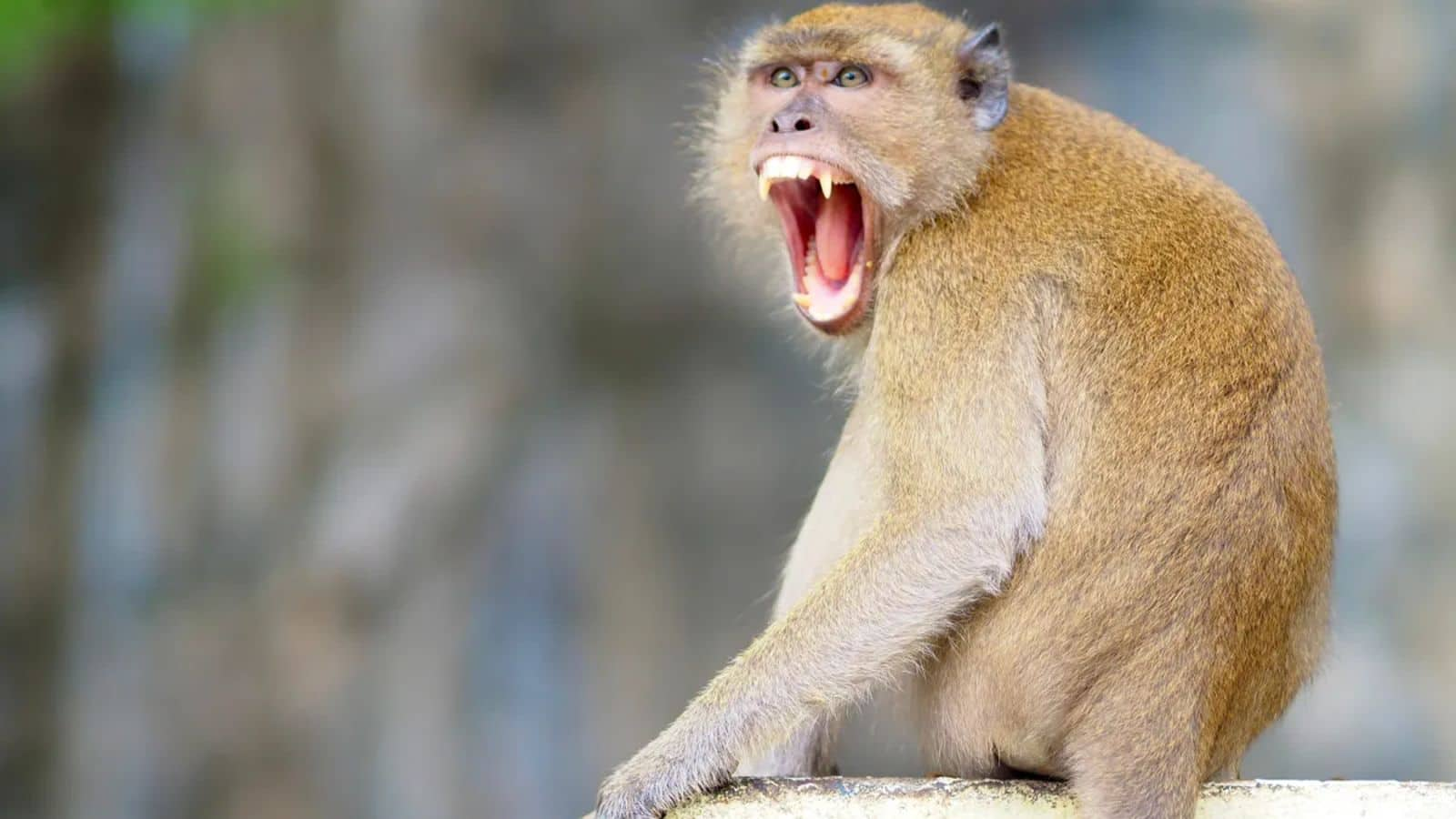
Hong Kong man contracts rare B virus after monkey attack
What's the story
In a first-of-its-kind incident, a 37-year-old man from Hong Kong has been diagnosed with the rare and potentially deadly B virus. The infection occurred following an altercation with monkeys. This marks the first recorded instance of such a case in the region. Currently, the patient is receiving treatment in an intensive care unit (ICU), as confirmed by local health officials.
Virus details
Understanding prevalence and symptoms
The B virus, also known as herpesvirus simiae, is prevalent among macaques, a diverse genus of Old World monkeys. In these host animals, it typically manifests symptoms similar to oral herpes such as cold sores around the mouth. However, when contracted by humans, it can cause severe damage to the nervous system, including encephalitis or brain swelling.
Impact
Transmission and fatality rate of B virus
The B virus is present in the saliva, urine, and feces of infected macaques. It's usually transmitted to humans through monkey bites or scratches. Without appropriate treatment, fatality rate of this virus is estimated to be around 80%. This makes it a highly lethal disease when contracted by humans. Since its discovery in 1932, approximately 50 documented cases have been reported worldwide, spanning the US, Canada, and mainland China. Among these cases, 21 individuals have succumbed to the illness.
Case report
Incident details and patient's current condition
Hong Kong's Center for Health Protection (CHP) confirmed the B virus infection after testing the man's spinal fluid. The man was visiting Kam Shan Country Park in February when he was attacked by monkeys. A month later, he was admitted to Yan Chai Hospital's emergency department with a fever and decreased consciousness. His condition remains critical as per the latest reports.
Precautionary measures
Rarity of B virus infections and public advisory
Despite its severity, instances of B virus infections are rare. This is the first local case discovered and reported by the CHP. In response to this incident, CHP officials are urging the public to avoid contact with macaques, especially touching or feeding them. They further advised that anyone attacked by monkeys, must wash their wounds with running water and seek immediate medical attention.